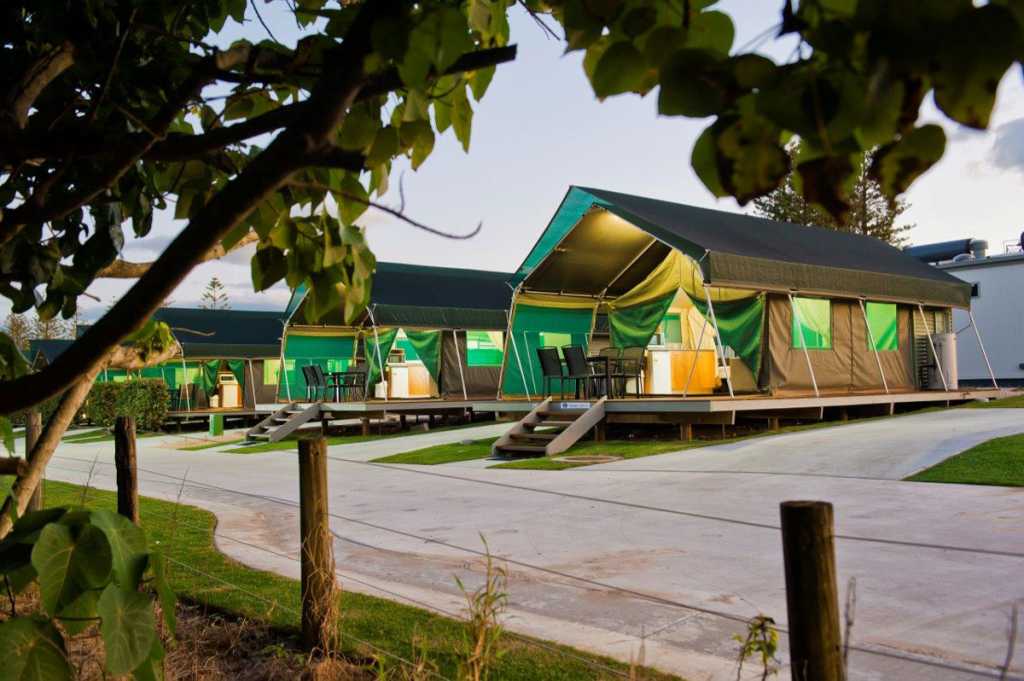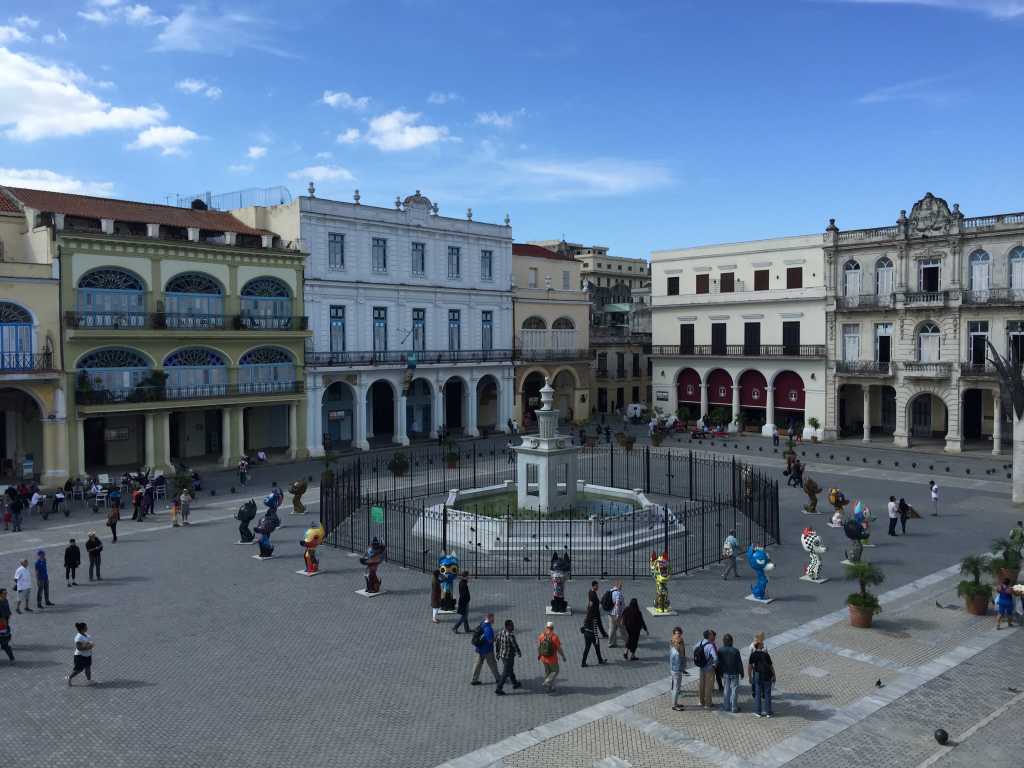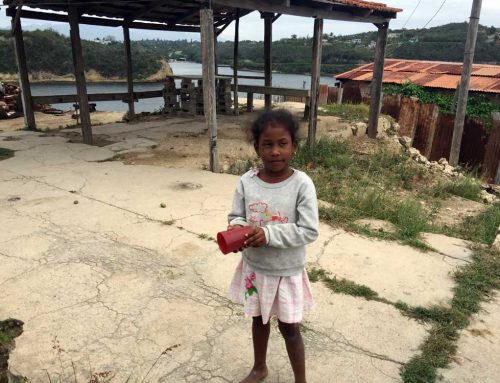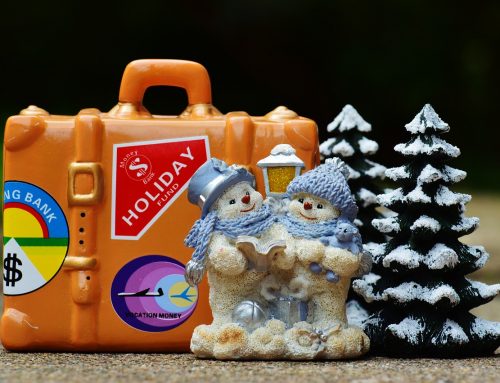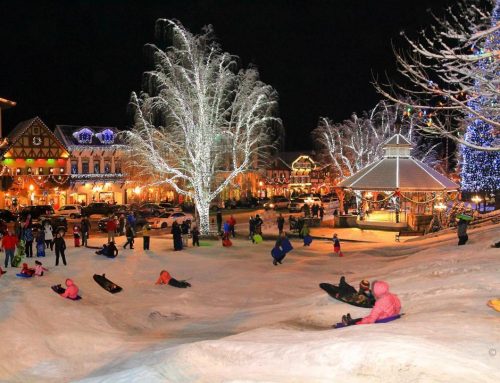Part 3 – With Bob Bell and Edith, two Brits travelling Oz by caravan
We were up early this morning, giddy at the prospect of heading for the ocean. We had missed the sound of the waves, the ozone-fresh air and the relative sophistication of the seaside towns.
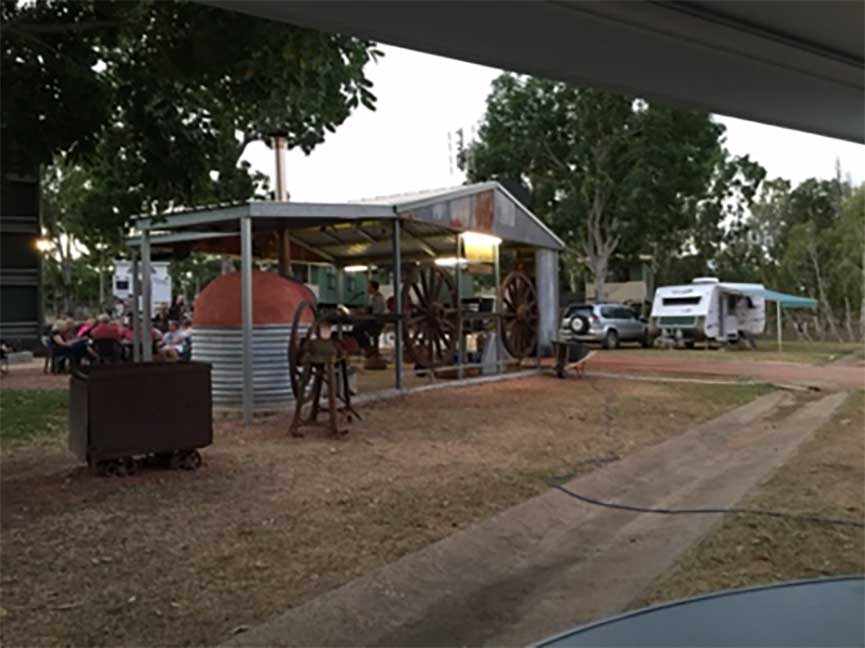
As we pulled off the caravan park, the van groaned and creaked as if we were dragging an old rusty paddle steamer behind us. As we turned sharp left and then right to slowly tow the van into the park’s approach road, the weighty creaking gave way to a series of startling explosive bangs and asthmatic wheezing sounds as if we had accidentally hooked up the rear of the van to a giant catapult that was straining to hold us back and that might at any moment release us, propelling the entire rig into the air.
I quickly went through my mental ‘Rolodex’ of safety hints – what was wrong? The caravan had never made this much of a commotion before.
We continued to trundle towards the park exit like an ancient passenger aircraft preparing for take off, when we remembered we had filled all three water tanks to the brim last night. This was the only thing different to our usual departure routine.
I did a quick bit of mental arithmetic (96 litres x 3 = 288 litres, or 288 kilos of water) we were carrying over a quarter of a tonne of water.
What on earth were we thinking?
This had to be the explanation; the van was just much heavier than ever before. No wonder it was complaining so loudly.
We resolved to find the next rest area and dump a couple of hundred litres of water. We didn’t need it as our next stop, Mission Beach, was definitely not going to be providing bore water given it is located only a few miles north of the town of Tully: a place that holds the record for Australia’s wettest community and boasts a large model of a Wellington boot to prove it. Such is the way with all Australian towns that have something peculiar (or should I say more generously, special) about them.
After consulting the map we checked the GPS but we could see no rest area nearby. We would just have to pull off the highway into a side road. The trick was to find one where we could easily turn around. The last thing we wanted was to drive down a dead end and then have to reverse back onto the highway.
Side roads came and went but none of them looked promising until we saw a sign on the right for a camping ground. That should be fine, we thought. We turned right off the highway onto a bitumen road that very quickly both descended into a valley and lost its bitumen. This was not looking good and the road ahead appeared to get narrower and a whole lot rougher. Not only might we not be able to turn the van, we might have to reverse it back up a steep hill. Worse than that, we might pick up a puncture.
Our confidence was draining when we saw a well-travelled Land Rover coming up the road. It stopped next to us. The driver stuck her curly, blue-rinsed, head out the window.
“Are you alright”? There were three other ladies of similar appearance smiling benignly in our general direction.
“We were just wondering if we would find somewhere to turn around if we carried on down this road,” asked Edith, who for some reason on this trip, always assumed responsibility for crowd control leaving me fee to concentrate on driving.
“Oh you’ll have no trouble once you get to the camp, there’s plenty of room there”.
Mrs Blue-Rinse was already selecting first gear as she barked this, adding, as the car lurched forward, “That’s what we campers do – always here to help each other. Bye….”
And with that, they were gone.
Our First Experience of Free Camping
We felt a great sense of relief on hearing this welcome information and proceeded gingerly down the hill. The road then turned right and up into an open field revealing a quite unexpectedly large number of parked caravans. As we got closer to the park, the number of vans it contained was nothing short of astonishing. It was like a large gypsy encampment with vans of all ages and sizes. Some of them looked like they had been in situ for years. They were laid out in a series of roughly concentric circles with an elderly amenity block at the centre.
This was ‘free camping’.
We approached the camp like the dropship from the U.S.S. Sulaco delivering space marines to LV-426 in the movie ‘Aliens’. We drove slowly around the outer perimeter of the camp on the lookout for life forms.
It appeared deserted.
There were signs of life: clothes on makeshift washing lines, barbecues with their maws agape, and empty tables and chairs. It was as if everyone had just upped sticks and left at a moments notice.
We continued our sweep. I imagined Edith saying,“Keep frosty people, I don’t want any casualties on my shift, it would look very bad on my report. ” I realised that was probably a line from ‘Avatar’ and I was mixing my movies up.
Eventually we passed a middle-aged couple walking their little Jack Russell.
“Good morning!” They sang in two-part harmony as we slowed to let them see we were friendly and intended no harm.
Before we knew it, we were back at the entrance road and turned out of the camp back towards the highway.
“That was a bit odd,” declared Edith “I’m not very keen on free camping if that’s what it is”
I had to agree.
Why would you want to stay in what was just a field, with no view to speak of, no pool to swim in, and no facilities save for what looked like a long drop toilet just to save the $30 a night it would cost to stay in a caravan park, with all that free bush entertainment, sardine-like parking, noisy neighbours and the invasive funk of rancid beef sausages on barbecues morning, noon and night?
We gave each other a knowing look.
Environmental Vandals
Before we reached the highway, we pulled to the side of the dirt road and opened up the tap on the draw bar at the front of the van. Clean, clear water soon started to form into a pool on the road. Within an instant the sound (and presumably the smell) of this fresh water drew the attention of a couple of near-desiccated looking kangaroos that popped their heads up from the yellow grass.

We felt decidedly guilty in ‘wasting’ water, but the thought that a couple of local animals would be able to slake their thirst made us feel a little better. After guessing we had dumped about half the water in our tanks, we headed back to the highway with a now silent caravan behind us.
Towards Townsville and The Coast
The remainder of our drive that day looked to be routine. Down towards the east coast in the direction of Townsville before heading north up the tropical coastline towards Mission Beach. As we got closer to the coast the scenery took on a very different character.
The red plains of the Outback surrendered to majestic highlands of dark green peaks and steep valleys. Through squinted eyes the mountains looked like they were covered in glossy verdant feathers.
The landscape was covered with the greyish-brown bark of Umbrella Trees and Hoop Pines dotted with the yellow flowers of the Red Kamala and King Orchid.
Frequent bright orange and red splashes from Firewheel trees set against the dark green foliage gave the country a decidedly tropical lushness.
As we approached Townsville, the volume of vehicles on the road increased dramatically resulting in Edith, rather theatrically, switching off the CD player to concentrate on the GPS.
Having to readjust to traffic lights and roundabouts after several weeks without having to worry about either, was a pleasant change and it was reassuring to feel the car and van working seamlessly together as I pushed the rig around ring roads and down slip roads and finally back onto the A1, now called the Bruce Highway.
Towing a Caravan is Easy
I was getting the hang of towing now, in fact it felt just as natural as driving the car on its own.
I looked into the rear view mirror and to my absolute horror instead of seeing the caravan; I saw nothing but the open road disappearing behind us. Where was the van?
No wonder it felt like I was just driving the car – the van had become disconnected.
Oh my God!
How could that have happened? We have a state-of-the-art tow hitch, two heavy-duty weight distribution arms and two 3,500 kilo rated safety chains providing an umbilical connection between the car and van. How could it have silently disconnected?
Then of course, I realised that what I was looking at in the rear view mirror was the picture from the camera on the back of the van. I quickly checked my wing mirrors and there was the van good as gold.
This whole experience of ‘bliss – panic – relief’ probably took no more than three seconds from start to finish but boy did it did provide me with a jolt.
Reverse Migration
Once we were clear of the Townsville ring road, the traffic heading north thinned out but the caravan traffic heading south was constant. My ‘pistol wave’ was almost never in its holster and after a good hour of pretend shooting I started to get a bit fed up with it.
August appears to signal the time for the nomads to head south after over-wintering in the warmer north since May. Now they were all in formation heading home like so many weary, wandering, white Pelicans.
We drove past a sign giving directions to a Cyclone Centre, indicating that we were most definitely in a very different geography to the Outback. Another one half way up a tree that just announced “Lawn Bowls” but imparted no other information, as if some solitary tree surgeon with Tourette’s had been there, contemplating playing a game later that week. A little later, we passed a tree dressed in a pink Bikini, that was possibly the most puzzling arboreal adornment of all.
The Pacific Ocean at Last
Only after we had set up camp in our new park, located only 50 metres from the Pacific Ocean and surrounded by tropical vegetation, did we notice the birdsong all around.
In the distance we could hear the booming call of the Southern Cassowary like a double bass underpinning the constant ‘coo coo cooing’ of flute-like Crested Pigeons and Peaceful Doves. It was like a Mozart Concerto, until a large squadron of screeching Rainbow Lorikeets swept across the park in tight formation, turning sublime natural music into something resembling a Stravinsky serial composition.
We went for a walk to the beach – we were not disappointed.
The warm breeze from the ocean enveloped us as we looked eastwards towards neighbouring Dunk Island.
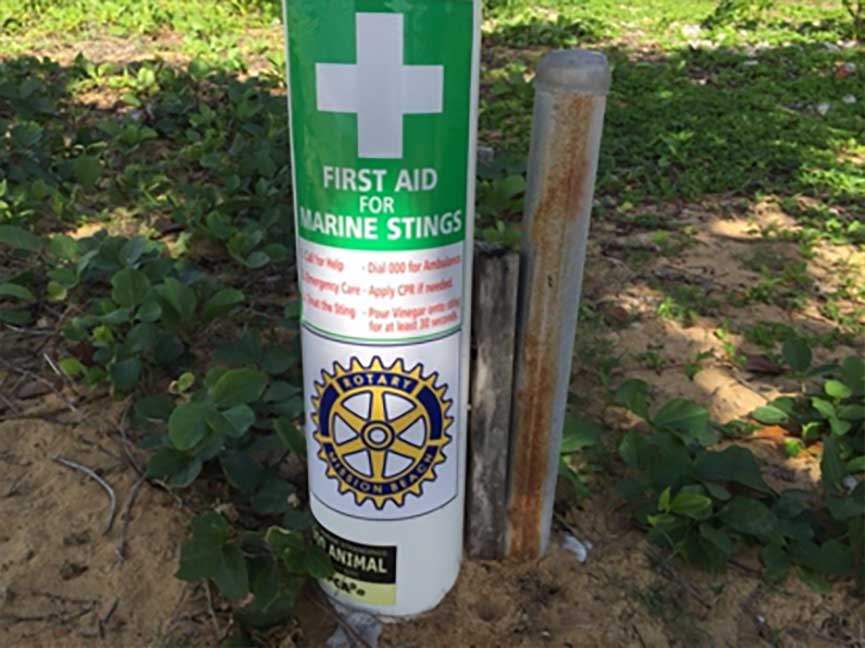
It was hard to believe that this pristine beach community was completely destroyed on 3rd February 2011 when Cyclone Yasi crossed the coast here. There was little sign of its destructive power now, but the reconstruction process must have been long and difficult.
It was Sunday, and for some reason we felt nostalgic for a traditional British Sunday which, for us, always started with an indulgently long read of the Sunday papers over a casual breakfast, a long walk on Wimbledon Common, and a few beers at a local pub followed by a traditional Sunday Roast.
What a shame all were unavailable to us – except for a visit to the local pub.
Actually, it was more like a restaurant and it was called Millers Beach Bar, but, if you closed your eyes, you could pretend you were in a pub and although the beer was the usual offering of the ice cold, plasma-yellow, fizzy pop which Australians call beer. It was none-the-less very pleasurable to sit on a high stool with the ocean before us and the bar behind us and take in the view. If ever the phrase, “Well, this is better than working” came to mind, this was the time.
After we guzzled down our first round, I returned to the bar for “same again please” (and the barman remembered our drinks – a very good indication of a proper pub with proper bar staff in my opinion). I asked what sort of damage Yasi had been responsible for four years earlier.
“It took six months to reopen the bar.” Lachlan informed me.
“The whole building was completely wrecked. We had a tree that blew through the main entrance; it went off like a bomb. No amount of cyclone proofing a building can account for that. Worse than that, the town copped the cyclone from both directions because the eye went right over us. No sooner had the winds dropped, they came back again even stronger from the other direction. That second blast was the real knock-out blow, because so many of the building were weakened when the storm first arrived”.
I gave a bit of a feeble, “Well, you have the place looking good now” as a kind of thank you for telling me the same story he must have delivered hundreds of times in the last four years, without making me feel like yet another blow-in that didn’t really care.
Actually, I did.
Copyright Bob Bell 2015


